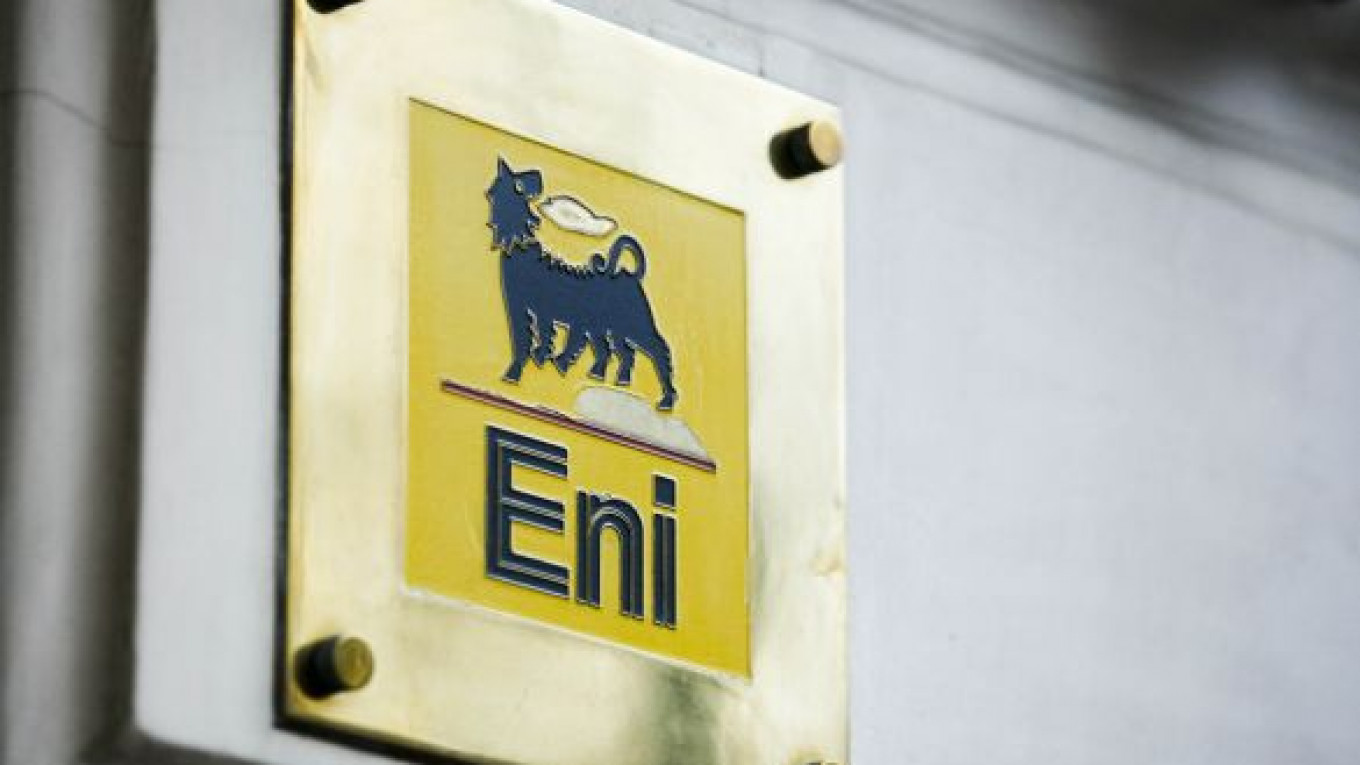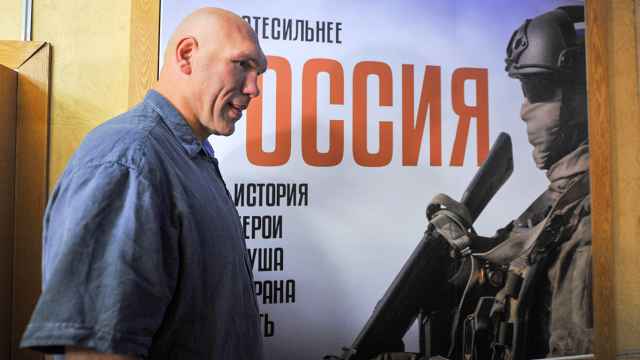SAMBURGSKOYE FIELD, Yamal-Nenets Autonomous District — Blown by a chilly wind, snowflakes attacked Eni chief Paolo Scaroni on Friday, landing on his bare head and beating softly against his glasses, as he took to an open-air stage here, several kilometers above the Arctic Circle, to announce something the Italian company had never done before.
For the first time in its history, Eni has begun producing natural gas in Russia, at this Arctic field, joining the scrupulously vetted cast of international energy majors operating in the country, such as ExxonMobil, Royal Dutch Shell and Total.
"The Yamal Peninsula is becoming one of the production footholds that are the most important for us," Scaroni said in a ceremony at a gas treatment hub where steel pipes arched and bent in a rectangular profusion.
As is standard practice, Eni has Russian partners in developing this field that used to belong to the fallen Yukos. Russia's second-largest gas producer Novatek has been at the forefront of the effort. It and Gazprom Neft hold equal shares that total 51 percent of the joint venture, called SeverEnergia, that is operating the field.
There's also a junior Italian partner, electricity producer Enel.
The Italian companies bought Yukos' gas assets at an auction in April 2007, committing to the option of taking Russian partners later on. The Samburgskoye field is the first of these assets to go into operation.
Novatek chief Leonid Mikhelson on Friday praised the fields for being close to roads and pipelines, which reduces the cost of their development.
"We consider this investment highly profitable," he said at a news conference at the gas facility that sits about 15 kilometers north of the Arctic Circle, according to an employee there.
About 90 percent of Russian gas comes out of this and other Yamal-Nenets fields.
Eni had to navigate the shoals of the domestic natural gas business. Gazprom owns all pipelines and holds a monopoly over the lucrative exports. The domestic market is regulated.
Scaroni said Eni reached a deal to sell its share of the project's natural gas, which will eventually grow to 9 billion cubic meters, and gas condensate to Gazprom at a reasonable price. It is a blend of the domestic and export prices, he said.
Eni's revenue will depend on the volume of its gas sold inside and outside the country after a deduction of Gazprom's transportation costs.
"We believe it's a fair calculation at the end of the day," Scaroni told The Moscow Times on the sidelines of the event.
Eni retains the rights to buy back its gas and market it in the country.
Enel plans to burn its share of the gas at the power plants it owns in Russia. Eventually, the supplies will cover at least 80 percent of its needs for the fuel, the company said in a handout.
The operation that started Friday has the capacity to produce 6 bcm of gas, Mikhelson said. A second phase, with the same potential, will open at the end of the year, he said.
The field employee who gave reporters a tour around the facility said the field would produce 2 bcm of gas this year. The facility separates the gas from liquids before pumping it into the pipeline.
Gazprom Neft will provide its expertise in extracting oil from the fields, its deputy chief Vadim Yakovlev said. With time, the partners aim to raise output to 5 million tons of oil per year — after state oil pipeline monopoly Transneft completes the Zapolyarye-Purpe link through the area, he said. The link could come online in 2016, he said.
Wrapping up the visit, Scaroni hopped into a black Toyota, and it whisked him to the airport through about 1 1/2 hours of white tundra lying under a thick gray mist, with gas rigs looming on the wayside like castles of some evil snow queen.
A Message from The Moscow Times:
Dear readers,
We are facing unprecedented challenges. Russia's Prosecutor General's Office has designated The Moscow Times as an "undesirable" organization, criminalizing our work and putting our staff at risk of prosecution. This follows our earlier unjust labeling as a "foreign agent."
These actions are direct attempts to silence independent journalism in Russia. The authorities claim our work "discredits the decisions of the Russian leadership." We see things differently: we strive to provide accurate, unbiased reporting on Russia.
We, the journalists of The Moscow Times, refuse to be silenced. But to continue our work, we need your help.
Your support, no matter how small, makes a world of difference. If you can, please support us monthly starting from just $2. It's quick to set up, and every contribution makes a significant impact.
By supporting The Moscow Times, you're defending open, independent journalism in the face of repression. Thank you for standing with us.
Remind me later.






